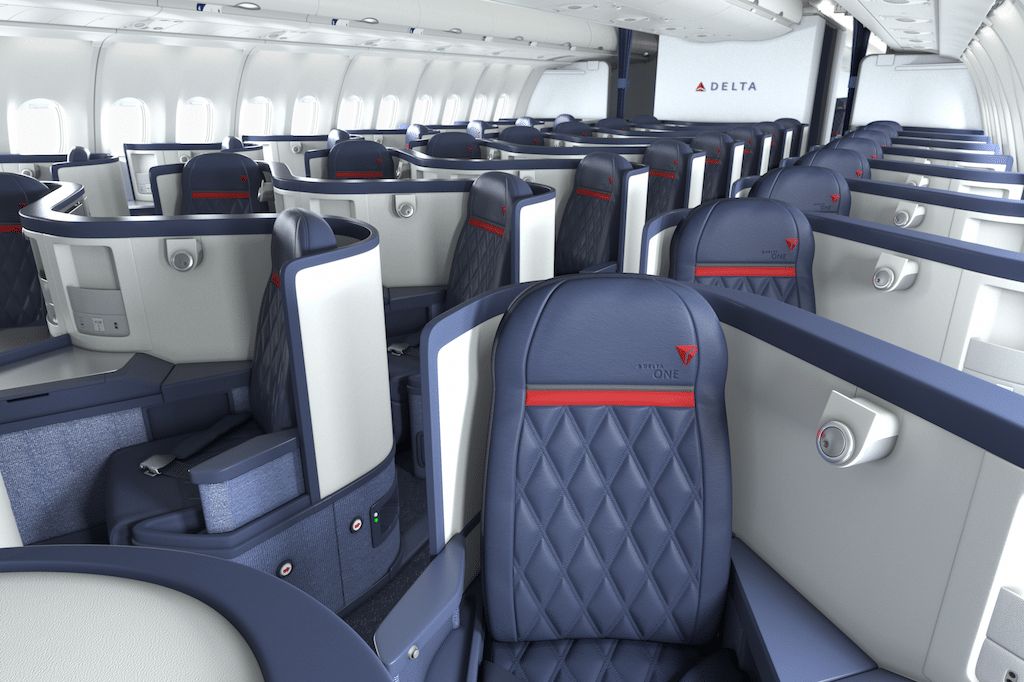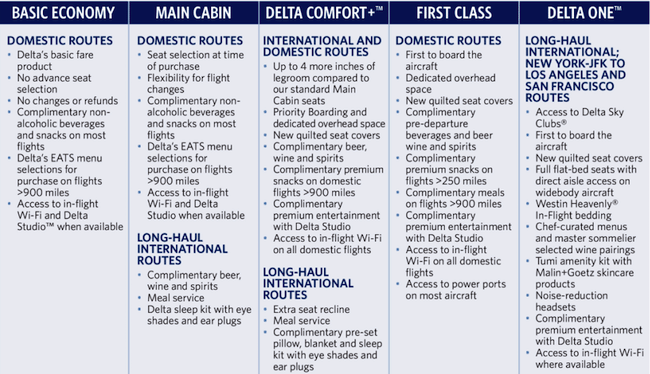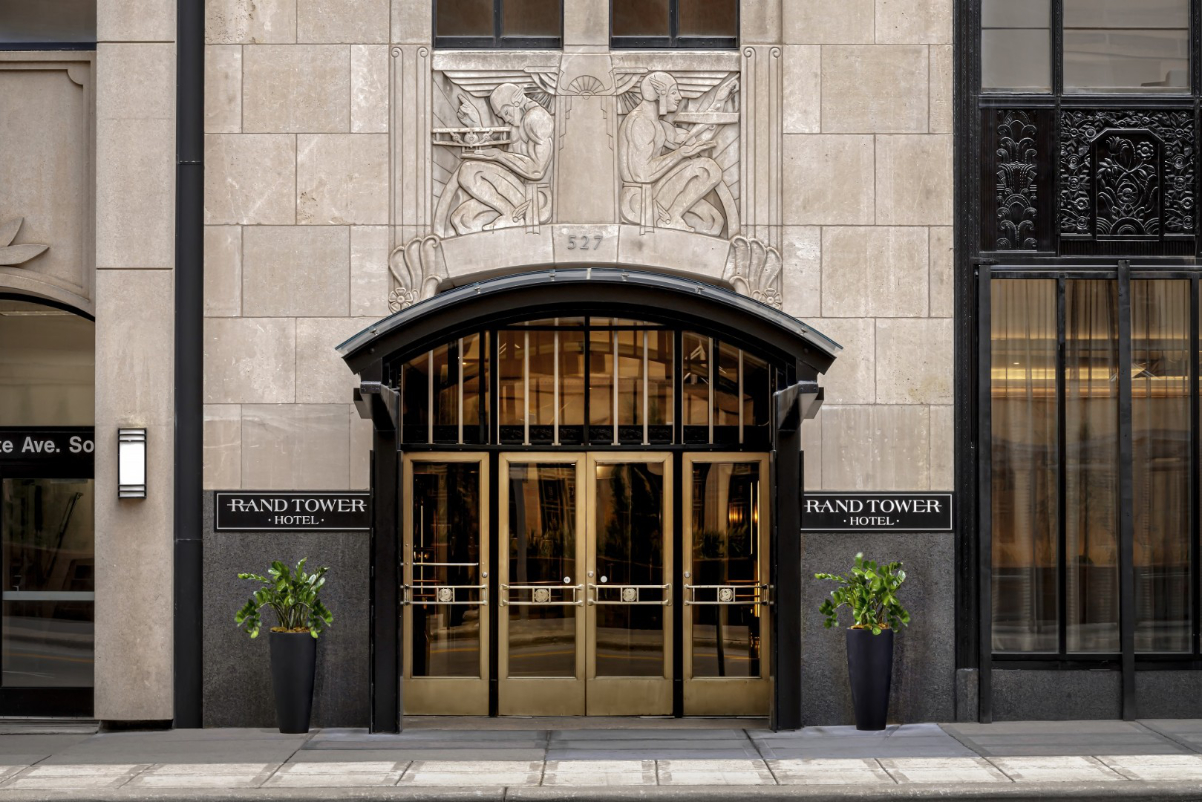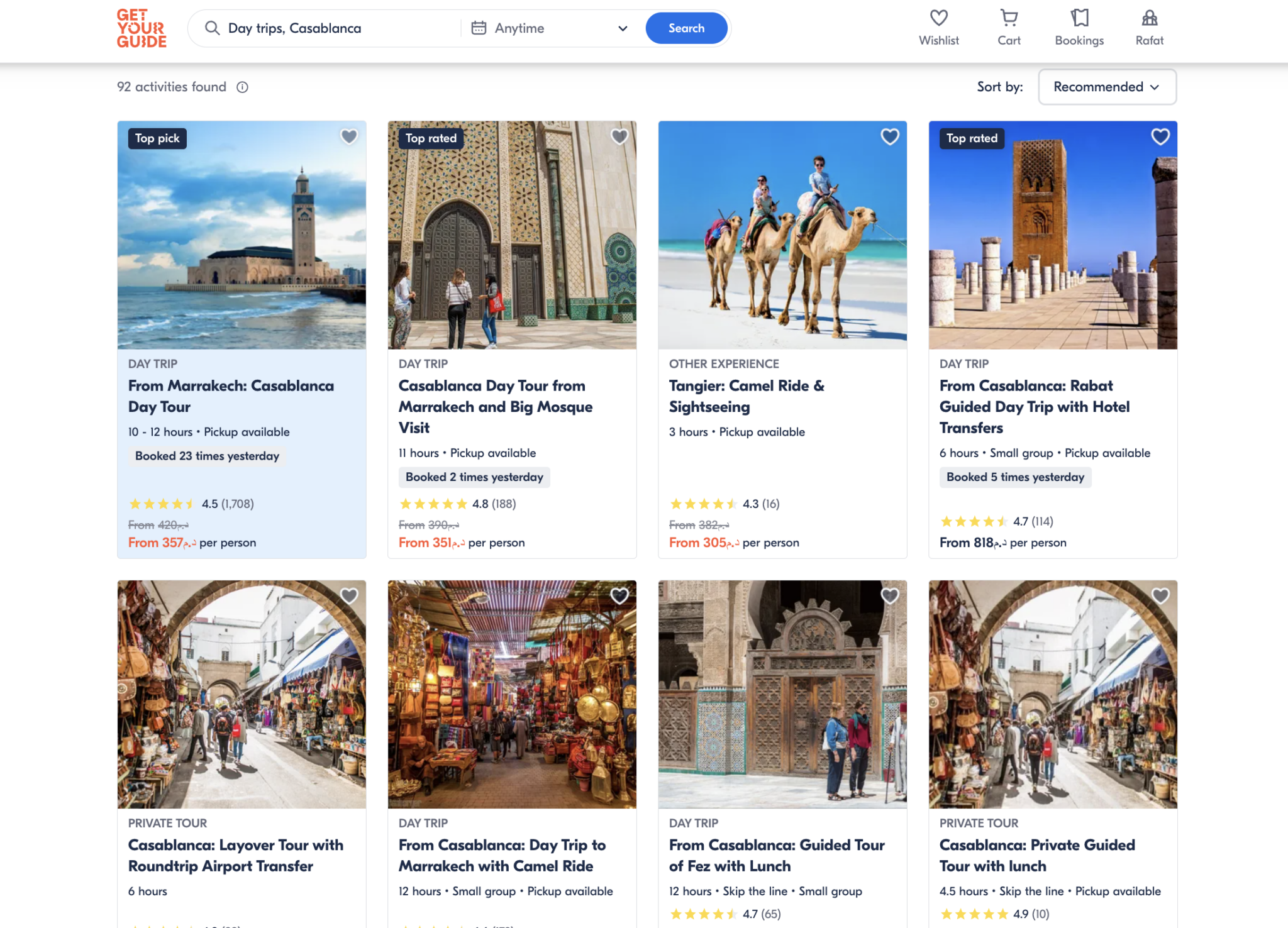Delta’s New Fares Mean Choice for Passengers and $1.5 Billion for the Airline

Skift Take
Delta Air Lines introduced branded flight products over the weekend and CFO Paul Jacobson estimates they will generate $1.5 billion annually in incremental revenue by 2018.
Jacobson said the new flight products, including Basic Economy, Main Cabin, Delta Comfort, First Class and Delta One, give travelers more choice and drive value ““rather than [imposing] punitive fees that customers rebel against.”
His comments came March 2 at the Raymond James 36th Annual Institutional Investors Conference in Orlando, Florida.
The new scheme will also drive a lot more revenue for the Atlanta-based airline.
For a cheaper fare, passengers can opt for Basic Economy, which doesn’t permit any changes or refunds or come with a seat assignment until the passenger checks in for the flight.
On both domestic and international routes, the new Delta Comfort+ product provides an extra four inches of legroom in the main cabin along with complimentary meals and entertainment.
The high-end Delta One product for certain long-haul domestic and international routes comes with Delta Sky Club access, makes passengers the first called for boarding, full-flat bed seats on widebody aircraft and other perks.
A Delta spokesperson points out that these new brands are products, not fares per se, as some of the categories can include several fare types.
Delta’s introduction of branded products highlights where the airline industry has been heading in recent years. Several global airlines have offered branded fares for several years and in the U.S. American Airlines debuted branded fares in 2012, and JetBlue intends to begin offering branded fares in the second quarter of 2015.
All of this increased “choice” for passengers translates into “pricing improvements,” as Jacobson put it, for Delta.
U.S. airlines are increasingly offering their passengers more choice and flexibility. Translation? You will be paying more if you want things such as a seat assignment and the ability to change your flight.
In 2015, Delta also plans to generate $350 million in “cost benefits” from things such as phasing out smaller regional jets and packing more seats onto planes without impacting passenger legroom, Jacobson said.
Delta accomplishes this sort of “density” push by doing such things as removing galleys in the middle of certain aircraft, Jacobson said.






